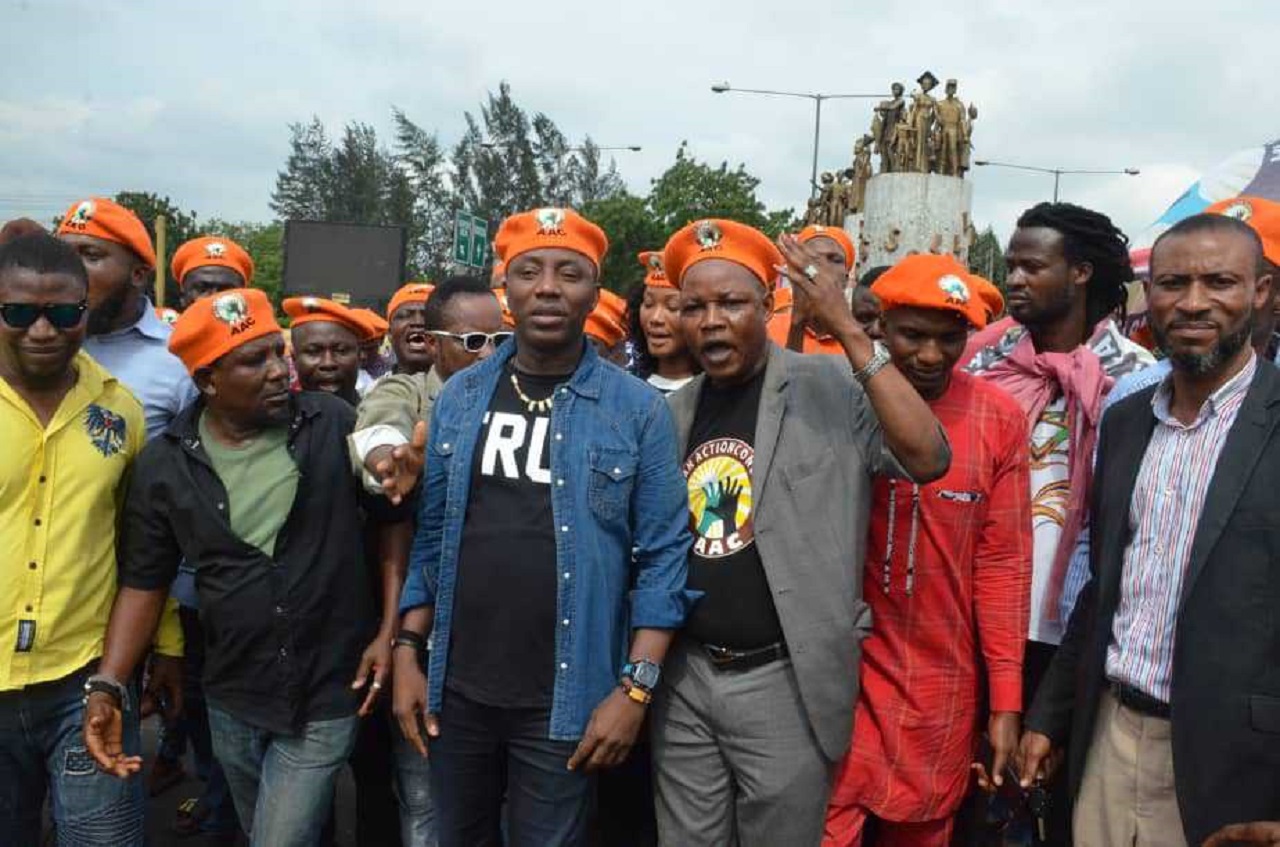Democracy means that the fundamental human rights of any individual are respected. To speak out, to speak against and to critically asses the government is part of those rights.
Mr. Omoleye Sowore of Sahara Reporters, therefore, acts democratically in speaking against the injustice, misgovernance, and retrogressive attitudes of the current Nigerian regime. To protest in a democratic state is democracy’s soul-trade.
However, there is an intelligent wordplay battle at play here: Protest vs Revolution. The PR officer of DSS, Mr. Peter Afunanya, stated that Sowore’s “Revolution Now” is likely to spring up sabotage, subversion of the democratic process, raises threats of terrorism and other fine defenses for the continued detention of Mr. Sowore. The word revolution(meaning a forcible overthrow of a government or social order, in favour of a new system)— has been taken in Nigeria for its literal meaning. If Sowore had simply called his mission a protest, perhaps, he would still be free. But, what’s the difference? It is simply a matter of semantics. The naïve PR officer of DSS and his slow thinking boss—the C-in-C, think they Sowore actions threaten Nigeria’s democracy.
Buhari and his cohorts, in this case, won the battle but lost the war. They’ve created an image of democracy against the clearly defined tenets of a democratic society. Democracy is thus always as much about the president’s definition and needs as it is about the main practice of democracy. Hence, it is double refraction, one that can be described through the figure of brute force and another that can be defined through self-gratification providing these two definitions serve their purpose(s) at any given time. To put it in another phrase, the government is connected to democracy, circumscribed by neither main principles of the rule of law nor the respect of human rights. Nigerians are witnessing another type of democratic process.
The complex process is what Hal Draper, American socialist activist, calls “bourgeois democracy” which goes against the regular process where the people have the power. Recognising the ongoing, vital presence of this new democratic process within Nigeria poses enormous problems for good governance. It is far from clear how to proceed if we want to broaden our democratic values. Bad enough that many things are going on wrong with the economy; must we take time out now to start understanding the meaning of democracy again or can we conclude that what we have in Nigeria is quasi-democracy? The term democracy may seem comprehensible on paper but as we begin to look more widely, we soon find ourselves amid a multitude of overlapping authoritarian features embedded in the so-called democratic process as prescribed by Buhari and friends.
This current will enter the history books for many thing and one reminder would be that it served the other side of democracy.
I’m on twitter: @moshoke

